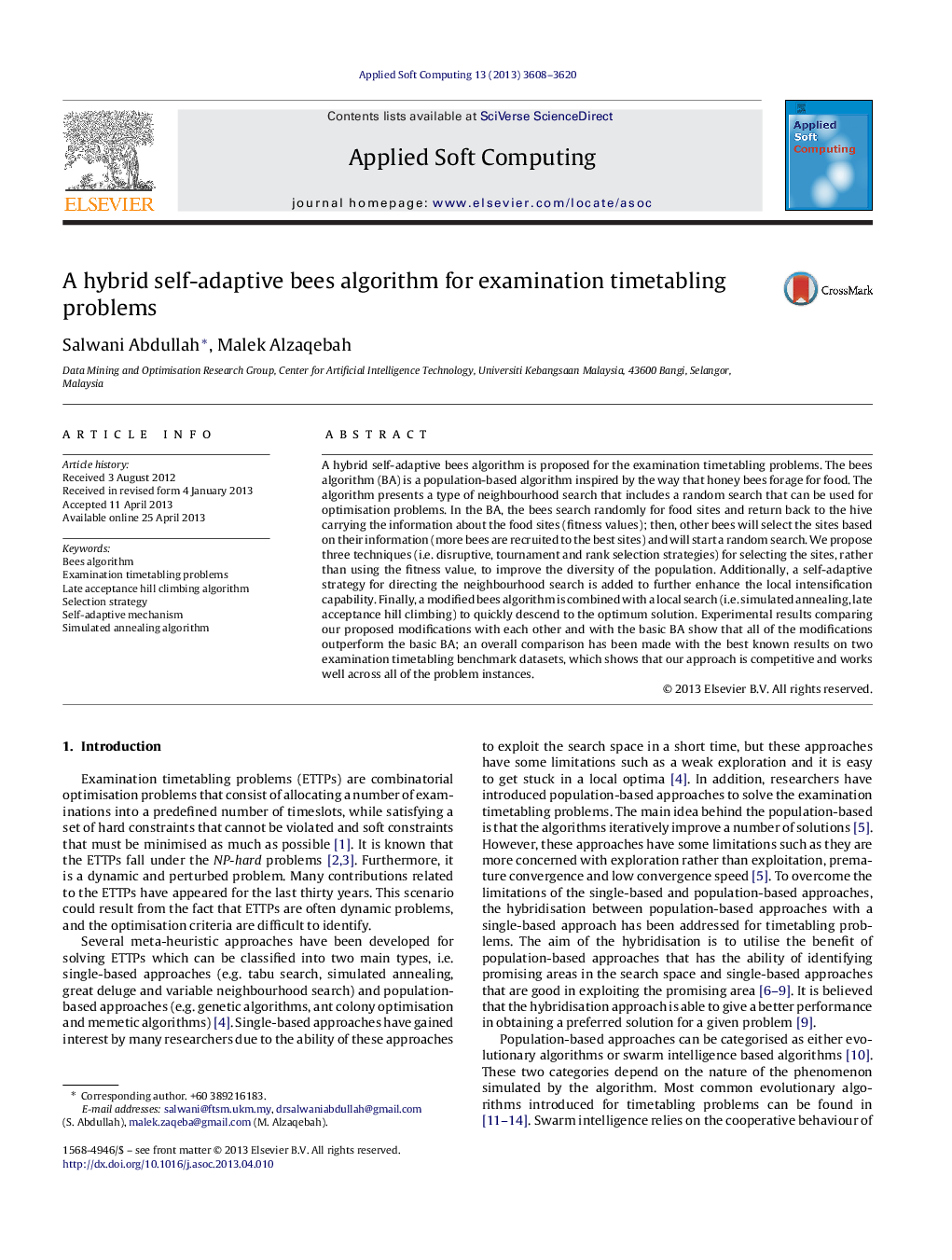| Article ID | Journal | Published Year | Pages | File Type |
|---|---|---|---|---|
| 496221 | Applied Soft Computing | 2013 | 13 Pages |
•Disruptive selection strategy to select the solution from the population to improve the diversity of the population.•Self-adaptive strategy for directing the neighbourhood search to enhance the local intensification capability.•Modified bees algorithm is combined with late acceptance hill climbing to quickly descend to the optimum solution.
A hybrid self-adaptive bees algorithm is proposed for the examination timetabling problems. The bees algorithm (BA) is a population-based algorithm inspired by the way that honey bees forage for food. The algorithm presents a type of neighbourhood search that includes a random search that can be used for optimisation problems. In the BA, the bees search randomly for food sites and return back to the hive carrying the information about the food sites (fitness values); then, other bees will select the sites based on their information (more bees are recruited to the best sites) and will start a random search. We propose three techniques (i.e. disruptive, tournament and rank selection strategies) for selecting the sites, rather than using the fitness value, to improve the diversity of the population. Additionally, a self-adaptive strategy for directing the neighbourhood search is added to further enhance the local intensification capability. Finally, a modified bees algorithm is combined with a local search (i.e. simulated annealing, late acceptance hill climbing) to quickly descend to the optimum solution. Experimental results comparing our proposed modifications with each other and with the basic BA show that all of the modifications outperform the basic BA; an overall comparison has been made with the best known results on two examination timetabling benchmark datasets, which shows that our approach is competitive and works well across all of the problem instances.
Graphical abstractFigure optionsDownload full-size imageDownload as PowerPoint slide
